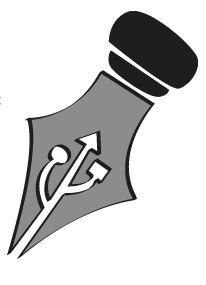Deanna Stover's Courses

Deanna Stover is an Assistant Professor at Christopher Newport University. This website is a compilation of her syllabi since starting at CNU in Fall 2020.
Digital Edition
Transcription Peer Review: Monday, September 28th (in class)
Diplomatic Transcriptions Due: Monday, September 28th by 11:59 pm
Clear Transcriptions Due: Wednesday, September 30th by 11:59 pm
Percentage: 10% (combined)
Essay Peer Review: Friday, October 7th (in class)
Essay Due: Friday, October 9th by 11:59 pm
Percentage: 10%
General Overview
We’ll be comparing the manuscript and periodical versions of “The Yellow Wall-Paper” using Juxta Commons Diff Checker, a collation software. You’ll be responsible for transcribing a short portion of the handwritten manuscript in two different forms and then writing an essay that discusses the differences between the two texts and reflects on the experience of transcribing and preparing a text.
Assignment Breakdown
- Transcriptions
I will assign you a few pages of the manuscript version of “The Yellow Wall-Paper” to transcribe. The assigned passages are in our Shared Google Drive.
-
Diplomatic Transcription - Monday, September 28th
For our purposes, a diplomatic transcription means that we’re including everything we see in the manuscript such as crossed-out words. The difference is, instead of using symbols or notes, you’ll be trying to simulate it in Google Docs by using strikethrough, for instance, and/or by adding a comment. We’ll talk more about how to do this for your specific pages in class, but here are some tips about reading handwritten documents in the meantime. And some guidelines can be found here–but be careful with this. Even if the handwriting is difficult to read, we’ll be working in class and with peers to create as “perfect” of a transcription as we can.
By class - You’ll want to finish your diplomatic transcriptions by class in order to (virtually) meet with your assigned partner. The two of you will “Proofread” the document together (see proofreading).
By 11:59 pm - Now that you’ve double-checked your transcription with your partner and corrected any mistakes, you’re done with the diplomatic transcription! Leave it in the Google Doc for now. You’ll submit everything to me on Wednesday.
-
Clear Transcription - Wednesday, September 30th by 11:59 pm
In a new Google Doc I will have created, you’ll be editing your transcription.
Juxta CommonsDiff Checker doesn’t recognize strikethrough or comments, so we’ll be cleaning up our transcriptions to be the “final” version that Stetson imagined. That means implementing any and all edits she made in the manuscript. So, delete crossed out words, for instance. You’ll also be resolving any comments you made, but again, this is in a new document.By 11:59 pm - Submit both transcriptions via Scholar (even if they’re exactly the same).
- Note that you will more than likely have comments in your diplomatic transcription and that I’d like to see those so make sure they show up in the document you submit to Scholar.
- Essay - Friday, October 9th by 11:59 pm
Now that we’ve created the Juxta Diff edition (in class), write up a 500-750 word essay that combines close reading and reflection. First of all, you’ll want to discuss the differences you see between Stetson’s manuscript and the periodical (feel free to cite Shawn St. Jean, but also think about what you notice on your own). Secondly, you’ll want to reflect on the process of transcribing and preparing the manuscript.
Some questions to consider:
- how does the punctuation change the meaning?
- how do word substitions/edits change the meaning?
- what was the process of transcribing like? Challenging? Easy? Remember to think critically about your reflection portion too!
Evaluation Criteria
- Transcriptions
-
Accurate diplomatic transcriptions
-
Polished clear transcriptions
- Essay
-
Uses adequate textual evidence (direct quotations, summaries, and paraphrased passages) to support any claims
-
Thinks critically about the transcription experience instead of simply stating feelings or facts
-
Organizes ideas – yes, even though you are doing both a close reading and a reflection, there should be some sort of organization
-
Utilizes proper mechanics; style, sentence structure, and spelling promote coherence, clarity, and credibility
-
Cites appropriately
Late Work
I will not accept late work for the transcriptions because we will need them for the next class. However, I will accept late work for the essays. Ten points will be deducted for each day the essay is late unless we have a previous agreement.